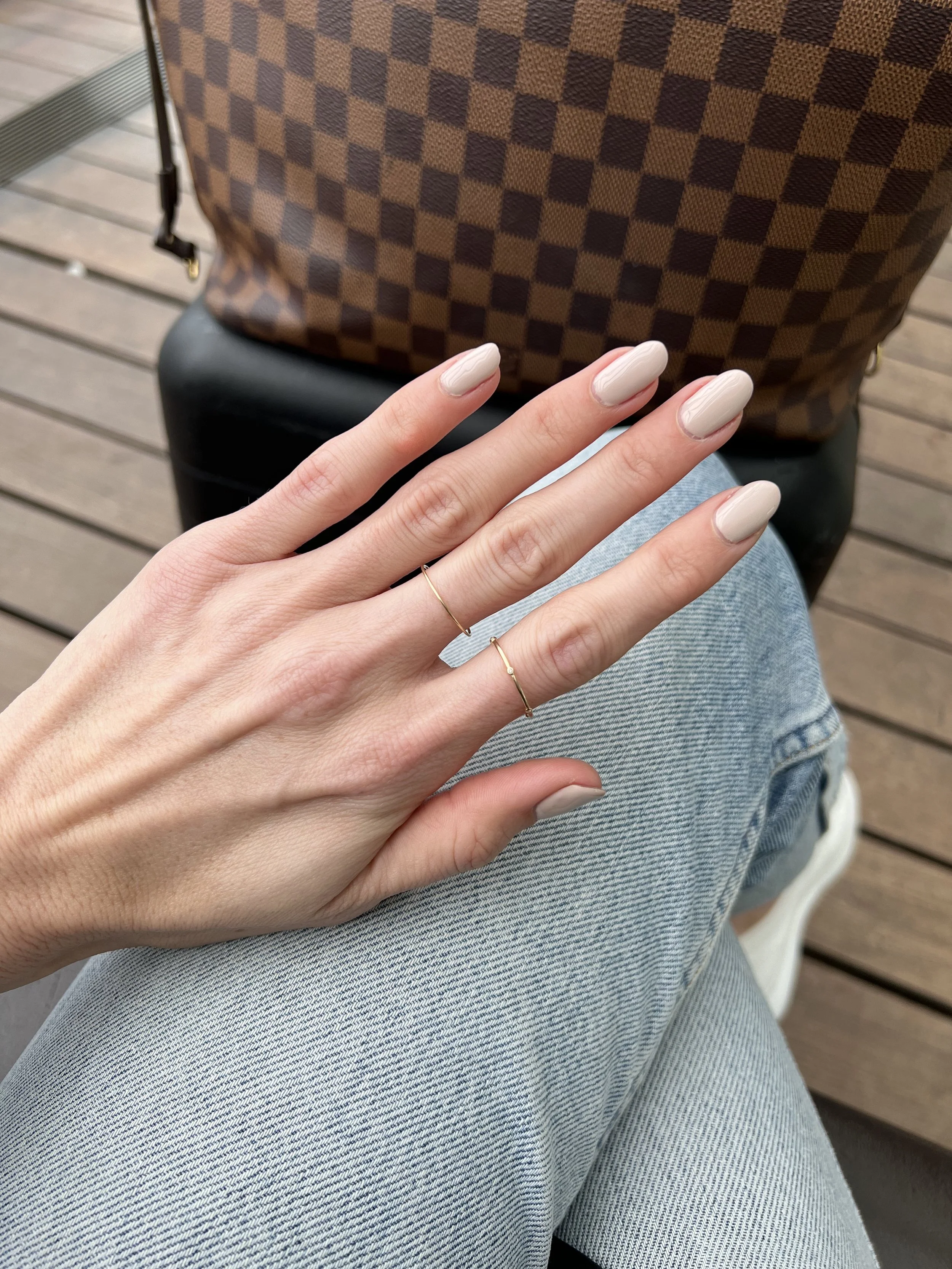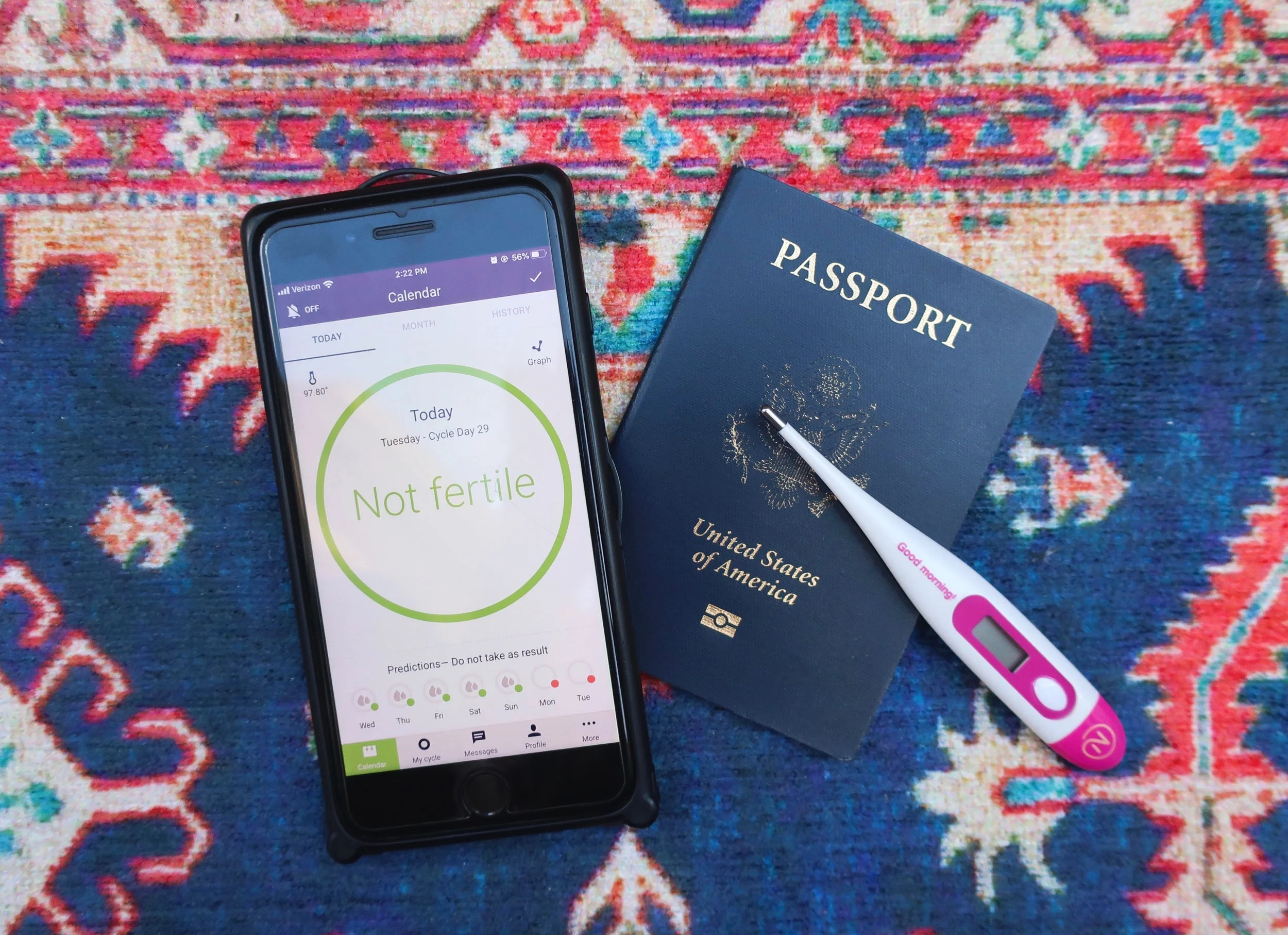Tips for Avoiding Jet Lag from a Seasoned Traveler
/Whether you’re traveling for work or for fun, arriving to your destination well-adjusted and rested is always a priority. I’ve spent the last few years traveling full-time, and have learned what works best for me to avoid jet lag when I’m bouncing between time zones. In this article, I’ll list a few tips that many would agree are helpful for avoiding or combatting jet lag, as well as a few that you may haven’t considered yet.
1. Hydrate
Good hydration is key to maintaining all bodily functions, and long-haul travel can be especially dehydrating. Traveling with a reusable bottle and drinking water regularly throughout your journey and as you arrive in your destination can help you regulate sleep patterns and maintain energy levels. Bring your own collapsible bottle that you can take through airport security, pack easily, and refill just about anywhere.
2. Set your clock to your destination’s time zone
Start adjusting to your destination’s time zone by setting your clock or watch as soon as you board your flight. Getting into the mindset of when you should try to be awake and when you should try to be asleep can help you plan your inflight activities and give you a head start on adjusting to the time difference when you land.
3. Try to choose a flight that arrives in the afternoon
Long travel days generally make me very tired, so I find that flights that arrive in the afternoon are perfect because I don’t have to force myself to stay awake for too long before allowing myself to fall asleep for the night at a decent hour. Even if the flight that arrives at a more ideal time is more expensive than the alternatives, I’ll weigh the costs and benefits and usually find that it’s worth it to land in the afternoon so I can be well-adjusted, productive, and present when I arrive.
4. Consider paying for an upgrade or better seat for a more comfortable flight experience
Similar to weighing the costs and benefits for choosing a flight that arrives in the afternoon like I mentioned in Tip #3, it may be worth it to you to upgrade your flight for a more comfortable seat so you can arrive to your destination feeling more refreshed. If you have an uncomfortable flight experience, you risk arriving to your destination exhausted and unable to enjoy your travels, and you could be setting yourself up for failure. Especially if you are investing in a travel experience that’s only a few days, the cost of arriving well-adjusted and comfortable may be worth it so you can enjoy every moment in your destination.
5. If your flight arrives in the morning, try to get a nap in as soon as possible
If your long-haul flight arrives in the morning, do your best to take a real, restorative nap as soon as you can. This is more convenient if you are returning home from a trip as opposed to going away, because early check-in at hotels is not always guaranteed or available. If you are able to nap as soon as you arrive after a morning flight, you’ll have more energy and have a better chance at staying up the rest of the day before getting ready for a full night of sleep that night.
6. If your flight arrives at night, avoid sleeping on the plane
If your long-haul flight arrives at night, do your best to stay awake on the plane to ensure that you are tired when you get to your destination. If you sleep too much on a flight that arrives at night and are well-rested, you may find yourself wide awake in the middle of your first night.
7. Structure your first day/days with plans to keep busy
Keeping busy and structuring your first day or days in a destination can help you maintain your energy levels while you’re adjusting to the time difference. Making interesting plans can motivate you to stay energetic, or distract you from what time may be back home. Structuring your day will also allow you to keep your momentum going, and can help you avoid slowing down and getting tired if it’s not an appropriate time to sleep. This is especially important when you’re traveling a long distance for a relaxing vacation, because you can easily be tempted to take it too easy on your first day and allowing yourself to sleep too much.
8. Be active and schedule some light exercise
Being active can help you regulate bodily functions, maintain energy levels, and sleep well when it’s the right time. Avoid doing anything too strenuous, but scheduling some light exercise or going for a long walk can be a great way to get your body moving. Going outside for a walk, getting fresh air, seeing the sunshine, and being around others that are out and about will also signal to your brain when you should be awake, and help you adjust to the time difference.
9. Stay up until at least 9PM
If you can, try to go to bed at your normal bedtime. But if you can’t, and you are struggling to stay awake as the day goes on, set a realistic goal for yourself to stay up as late as you can. I average about 6 hours of sleep on a normal night, so if I can stay up until 9PM or 10PM, I should be able to sleep until at least 3AM or 4AM, and each night I’ll get closer to being well-adjusted. If I’m getting tired as the day goes on and I fall asleep before that, I risk waking up as early as midnight— which is harder to recover from.
10. Avoid doing anything that will make you sleepy during the day
When planning your first days in a destination with activities that will keep you motivated, active, and busy, be sure to avoid doing things that will relax you too much or make you sleepy. As I mentioned in Tip #7, if you are traveling for a relaxing vacation, there may be plenty of calming activities that will appeal to you such as reading, taking long hot showers or baths, having a massage, or lounging on a beach chair or couch. If you can avoid these activities— at least on your first day— you will be better equipped for avoiding jet lag and you’ll allow yourself to make the most of the rest of your vacation or travels.
11. If you drink coffee, time your caffeine intake so you can stay awake until a decent hour
If you regularly drink coffee, time your intake so you will have energy throughout the day or throughout the evening. Having coffee too late in the day can also prevent you from sleeping well at night, so it’s important to know your own limits or habits. I usually like to take an espresso in the early afternoon on a regular day, and know that the latest I can have one and still sleep soundly that night is around 5PM or 6PM. When I’m arriving to a destination, I make it a point to schedule an espresso at this time in the afternoon to help me stay awake until it’s an appropriate time to go to sleep.
12. If you have to nap, be disciplined and intentional
It’s always important to listen to your body, so if you’ve tried all other suggestions and are still struggling to stay awake and energetic in the afternoon, then let yourself take a nap. Being disciplined is essential so you don’t oversleep— set an alarm (or multiple alarms) to allow yourself to nap for maximum of one hour, and get up as soon as you hear it. An intentional, well-timed nap can give you a boost of energy to get through the rest of the day, whereas a long nap can make you drowsy and prevent you from being tired later in the night. When your alarm goes off it can be very tempting to snooze and stay in bed, but listening to it is crucial to avoiding jet lag when traveling. Committing to taking a quick shower after your nap can help you wake up refreshed and get energized.
13. Don’t stress if you can’t stay asleep at night
Stress and worry can raise your heart rate and have an affect on your body’s recovery— so if you can’t sleep through the night and wake up very early, don’t beat yourself up about it. Staying in bed and relaxing is still beneficial while you are adjusting to the time difference. Even if you’re not able to sleep, doing things that keep you relaxed— like a long shower, a hot bath, reading, and laying in a comfy bed— is more helpful than being stressed.
14. Shop tech and accessories that will help you sleep
There are plenty of useful accessories that can help you relax or sleep, including eye masks, ear plugs, and noise-canceling headphones. On a recent flight, I even fashioned a disposable face mask into an eye mask and it did the job! I also recently started wearing an Oura Ring, which has provided me with interesting insights about my personal sleep habits and sleep quality, and encouraged me to be even more mindful about getting enough restorative sleep. You can shop my favorite sleep accessories on Amazon at the links below, or click here if you’re curious about the Oura Ring.
Shop accessories for sleeping:
This post contains affiliate links and at no cost to you, I may earn a commission which allows me to keep this site free for all readers. I only recommend properties, products, brands, and services that I personally use and believe in.



















